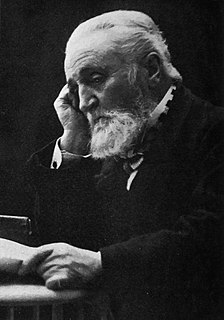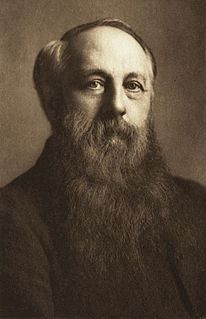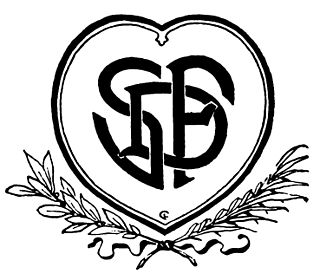Related Research Articles

The Independent Labour Party (ILP) was a British political party of the left, established in 1893, when the Liberals appeared reluctant to endorse working-class candidates, representing the interests of the majority. A sitting independent MP and prominent union organiser, Keir Hardie, became its first chairman.

Edward Carpenter was an English utopian socialist, poet, philosopher, anthologist, an early activist for gay rights and prison reform whilst advocating vegetarianism and taking a stance against vivisection. As a philosopher he was particularly known for his publication of Civilisation: Its Cause and Cure. Here he described civilisation as a form of disease through which human societies pass.

Bloody Sunday took place in London on 13 November 1887, when marchers protesting about unemployment and coercion in Ireland, as well as demanding the release of MP William O'Brien, clashed with the Metropolitan Police and the British Army. The demonstration was organised by the Social Democratic Federation and the Irish National League. Violent clashes took place between the police and demonstrators, many "armed with iron bars, knives, pokers and gas pipes". A contemporary report noted that 400 were arrested and 75 persons were badly injured, including many police, two policemen being stabbed and one protester bayonetted.

Jenny Julia Eleanor Marx, sometimes called Eleanor Aveling and known to her family as Tussy, was the English-born youngest daughter of Karl Marx. She was herself a socialist activist who sometimes worked as a literary translator. In March 1898, after discovering that Edward Aveling, her partner and a prominent British Marxist, had secretly married a young actress in June of the previous year, she poisoned herself at the age of 43.

Justice was the weekly newspaper of the Social Democratic Federation (SDF) in the United Kingdom.
Samuel Mainwaring was a Welsh machinist and socialist political activist who was a founding member and key leader of the Socialist League, one of the first socialist political parties in Britain. In his later years, he turned from Marxist socialism to the libertarian socialist doctrine of anarcho-communism. He is best remembered as the father of the term "anarcho-syndicalism".
The Labour Emancipation League was a socialist organisation in London.

Anarchism in Ireland has its roots in the stateless organisation of the túatha in Gaelic Ireland. It first began to emerge from the libertarian socialist tendencies within the Irish republican movement, with anarchist individuals and organisations sprouting out of the resurgent socialist movement during the 1880s, particularly gaining prominence during the time of the Dublin Socialist League.

John O’Dwyer Creaghe, also known as Juan Creaghe, was an Irish-born anarchist.

The Socialist League was an early revolutionary socialist organisation in the United Kingdom. The organisation began as a dissident offshoot of the Social Democratic Federation of Henry Hyndman at the end of 1884. Never an ideologically harmonious group, by the 1890s the group had turned from socialism to anarchism. The group was finally disbanded in 1901.
Tom Maguire was a British socialist, trade union organiser and poet from Leeds.

The Socialist Labour Party was a socialist political party in the United Kingdom. It was established in 1903 as a splinter from the Social Democratic Federation (SDF) by James Connolly, Neil Maclean and SDF members impressed with the politics of the American socialist Daniel De Leon, a Marxist theoretician and leading figure of the Socialist Labor Party of America. After decades of existence as a tiny organisation, the group was finally disbanded in 1980.

The British Socialist Party (BSP) was a Marxist political organisation established in Great Britain in 1911. Following a protracted period of factional struggle, in 1916 the party's anti-war forces gained decisive control of the party and saw the defection of its pro-war right wing. After the victory of the Bolshevik Revolution in Russia at the end of 1917 and the termination of the First World War the following year, the BSP emerged as an explicitly revolutionary socialist organisation. It negotiated with other radical groups in an effort to establish a unified communist organisation, an effort which culminated in August 1920 with the establishment of the Communist Party of Great Britain. The youth organisation the Young Socialist League was affiliated with the party.

Henry Mayers Hyndman was an English writer and politician.

The Social Democratic Federation (SDF) was established as Britain's first organised socialist political party by H. M. Hyndman, and had its first meeting on 7 June 1881. Those joining the SDF included William Morris, George Lansbury, James Connolly and Eleanor Marx. However, Friedrich Engels, Karl Marx's long-term collaborator, refused to support Hyndman's venture. Many of its early leading members had previously been active in the Manhood Suffrage League.

The Socialist Party of Great Britain (SPGB) is a socialist political party in the United Kingdom. Founded in 1904 as a split from the Social Democratic Federation (SDF), it advocates using the ballot box for revolutionary purposes and opposes both Leninism and reformism. It holds that countries which claimed to have established socialism had only established "state capitalism" and was one of the first to describe the Soviet Union as state capitalist. The party's political position has been described as a form of impossibilism.

John Edward Williams was a British socialist activist.

Far-left politics in the United Kingdom have existed since at least the 1840s, with the formation of various organisations following ideologies such as Marxism, revolutionary socialism, communism, anarchism and syndicalism. They have also existed as factions in the Labour Party, called the "hard left".

Andreas Scheu was an Austrian socialist activist.
References
- 1 2 Edward Carpenter, My Days and Dream
- ↑ Ó Catháin, Máirtín (2004). "Dr. John O'Dwyer Creaghe (1841-1920): Irish-Argentine Anarchist". Society for Irish Latin American Studies. Retrieved 13 March 2022.
- ↑ Dan J. Bye, An Episode in Sheffield Freethought History
- ↑ Graham Stevenson, Compendium of Communist Biography Archived 2010-03-28 at the Wayback Machine